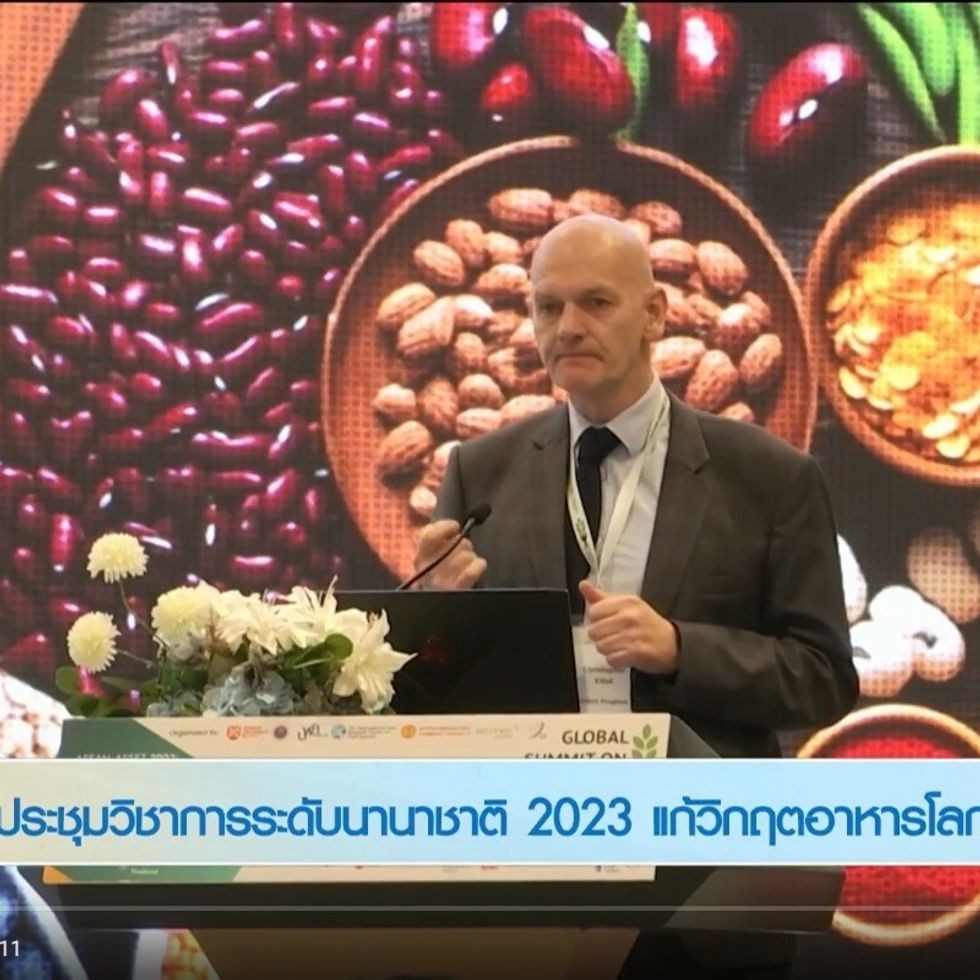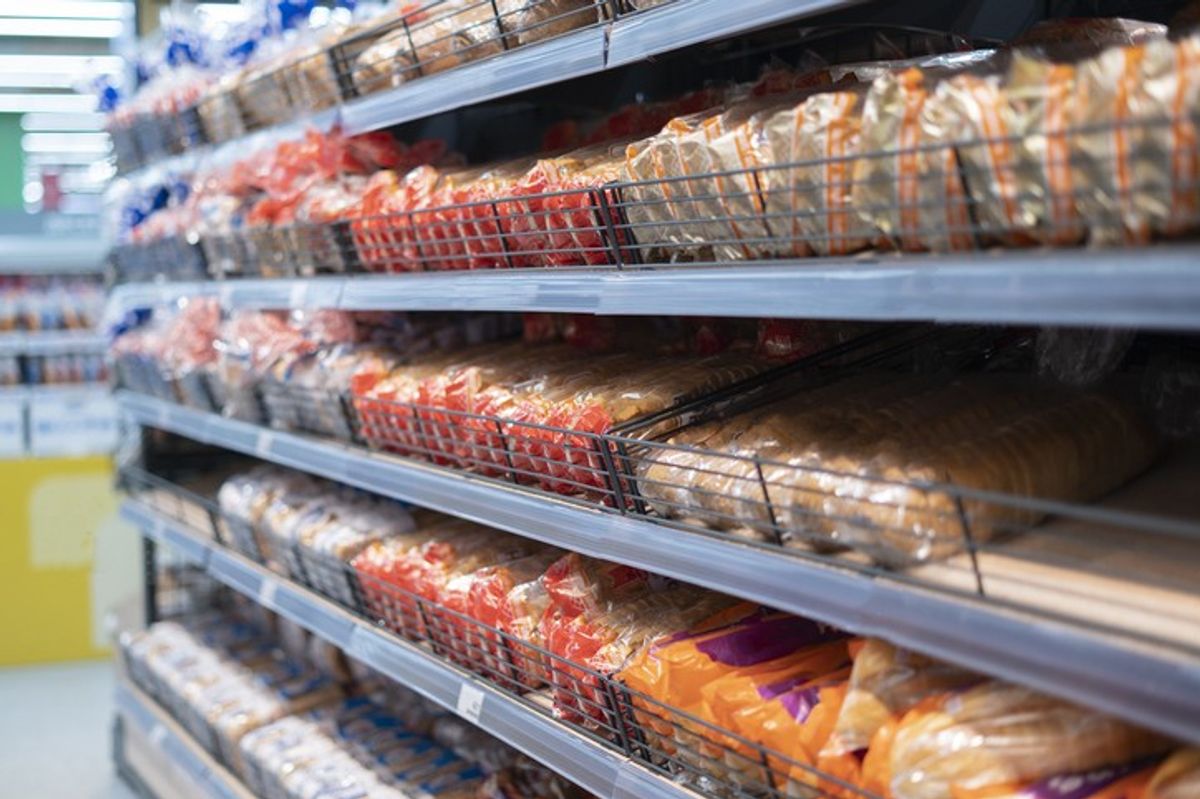The UK is desperately in need of a food security policy to protect consumers and safeguard legitimate businesses, a leading food expert has said.
According to Chris Elliott, professor of food safety and microbiology at Queen's University Belfast and founder of the Institute for Global Food Security, a series of threats to food security are converging to create “absolute chaos”.
Professor Elliott – who authored the government-commissioned report into the 2013 horse meat scandal – told the Chartered Trading Standards Institute (CTSI) Conference on 19 June that there is an urgent need for the UK’s next government to appoint a dedicated food minister and to implement a robust food security policy.
He also slammed “scandalous” cuts to Trading Standards resources as a major threat to food safety.
“I think the cutbacks in the Trading Standards workforce are the first problem; those people are really at the coalface and understand the problems that are going on. That, and the disjointed nature of food monitoring surveillance governance in the UK, is scandalous to be honest,” Elliott said.
Regulatory divergence in the wake of Brexit, disruption to global supply chains caused by the war in Ukraine, the climate crisis and the rise of online food retail have created a challenging environment for businesses and an increasingly risky state of play for consumers.

Among Elliott’s concerns are the withdrawal of legitimate importers from the UK market – as a result of the increased costs and paperwork brought about Brexit – which is creating new opportunities for unscrupulous businesses and rogue traders to bring non-compliant and potentially unsafe foods into the country.
“For the last 14 years, the Conservative government has basically said, it's a free market, don't worry about it, because the food industry will take care of everything. Don't worry if we import more, because imports are cheaper. So there has been no policy whatsoever. The UK currently imports nearly 50 per cent of all the food that we eat, so everything that happens in other parts of the world will impact us,” he said.
“I know a company based in Spain who have taken the decision not to import anything into the UK anymore because it’s not a big enough market for them to deal with the amount of paperwork. If the good guys stop wanting to import stuff, the bad guys will step in, because the UK will be a much easier touch than Europe.
“People are realising it's now much easier to get food that is not of the same quality and standards into the UK, because we don't have the same checks and measures, or the same network of exchange of information. There are lots of reports about dodgy meat turning up in Felixstowe, for example – and that's just one of the consequences of becoming very isolated.”
Elliott cited the disjointed approach to food regulation and monitoring as a key risk to consumers and legitimate businesses. He added that the government’s decision to scrap the LACoRS (Local Authorities Coordinators of Regulatory Services) system in 2010, combined with sweeping cuts to Trading Standards services, has dramatically undermined the UK’s ability to ensure that food entering the country, being sold in shops and online, and reaching consumers’ tables, is accurately described and safe to eat.
“There are also massive challenges out there because of our changing climate. That's really driving some bad behaviours, even with good businesses. The overuse of pesticides and illegal pesticides, for example, is on the rise because producers are trying to deal with climate crisis situations and crop failures,” he added.
“Ten years on from the horse meat scandal, the large mainstream food manufacturers and retailers are much better in terms of the monitoring processes and defence mechanisms they have in place. But in our food system, there are the large players, and then there are the small players, and then there's online – which is the Wild West. We have found a huge amount of food fraud online. They can basically sell whatever they want. That's what we're up against.”
Commenting, Jessica Merryfield, head of policy and campaigns at CTSI, noted that the food supply chain and landscape has changed significantly, and regulators need the resources to do their job.
“This means having the legislative backing to allow officers to effectively deal with the challenges arising, but the rules are only as good as they are enforced; the decimation of qualified, skilled officers in this area needs to be reversed to allow this to happen,” Merryfield said.
“Without sufficient levels of officers working to ensure our food is produced and supplied to the highest levels of safety, effectively we are allowing decriminalisation by the back door. At CTSI, we are calling for the building back of Trading Standards services over the next four years, through funding of extra posts and apprenticeships. CTSI are also proud to announce that we are producing standalone module qualifications in feed and animal health, with a food one coming soon, to give local authorities and other stakeholders the opportunity to get staff trained quicker in these areas.”
Louise Hosking, executive director at the Chartered Institute for Environmental Health (CIEH), added that the CIEH’s 2024 manifesto outlines the need for the UK government to strategically deliver the National Food Strategy, with a mandate to ensure all policies related to food work together to deliver health and environmental benefits.
“At each stage of the food supply system, from food handling, preparation and delivery, environmental health professionals work to ensure that the UK’s has a stable and safe supply of food,” Hosking said. “In the lead up to the next general election we urge the next UK government to create a fairer, more sustainable food system.”


